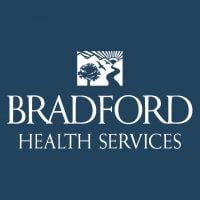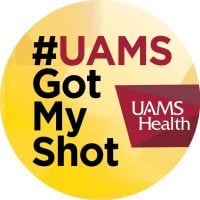Sober Living
Drug Rehab Center in Little Rock, Arkansas
Sober Living in Little Rock, Arkansas offers a comprehensive drug rehabilitation program comprising of residential care, daytime and evening outpatient treatment, individual and group therapies, family counselling, 12-step meetings, life-skills training, educational and vocational assistance with 24/7 staff available for support.
About Sober Living in Arkansas
Sober Living in Little Rock, Arkansas is a treatment facility that specializes in helping individuals struggling with alcoholism, opioid addiction, substance abuse, and drug addiction. With a focus on providing comprehensive care, they offer various levels of treatment including aftercare support, drug rehab, and sober-living/half-way programs. Located in a supportive and therapeutic environment, Sober Living is dedicated to helping individuals on their path to sobriety.
At Sober Living, their services encompass a wide range of treatment methods designed to address the specific needs of each individual. Their aftercare support programs aim to provide continued guidance and support as individuals transition from formal treatment to everyday life. In addition, their drug rehab programs offer comprehensive counseling, therapy sessions, and educational resources to help individuals overcome their addiction. The facility also offers residential levels of care, providing a structured and supportive environment for those in need. With a focus on holistic healing and individualized treatment plans, Sober Living is committed to helping individuals achieve lasting recovery.
Genders
Ages
Modality
Additional
Conditions and Issues Treated
Substance Abuse Treatment is important when getting sober, as it helps addicts learn the skills they need to live a clean life. There are many different kinds of recovery treatment, including but not limited to medication-assisted therapy, behavioral therapeutic approaches, self-help groups, and counseling. Each treatment has its benefits that help addicts recover.
Counseling can help addicts learn the skills they need to live sober lives. It can be used to treat underlying mental health issues, like depression or anxiety, that could lead to relapse. Counseling can also help people find work, deal with family problems, and learn to manage living without drugs.
With so many people addicted to opioids, we need to help those who want to quit. The cycle begins when opioid addicts take opioids for a painful injury. When someone starts taking their medication differently or in excess, it means they’re addicted and at risk of overdosing.
In , detoxing from these types of treatments is the most effective way to beat this. Most facilities begin with medical assistance and then provide counseling services; rehabilitation follows after successful treatment.
Levels of Care Offered
This center offers a variety of custom treatment tailored to individual recovery. Currently available are Aftercare Support, Drug Rehab, Residential, Sober-Living / Half-Way, with additional therapies available as listed below.
Sober living homes, offered by rehabilitation facilities, help recovering addicts transition back into society. These homes have rules and regulations that must be followed to maintain sobriety. They also provide resources such as vocational training and therapy sessions.
Residential treatment programs are those that offer housing and meals in addition to substance abuse treatment. Rehab facilities that offer residential treatment allow patients to focus solely on recovery, in an environment totally separate from their lives. Some rehab centers specialize in short-term residential treatment (a few days to a week or two), while others solely provide treatment on a long-term basis (several weeks to months). Some offer both, and tailor treatment to the patient’s individual requirements.
The accomplishment of completing a drug or alcohol treatment program is just the first step. Once that is complete, aftercare support comes into play. This includes helping people adjust to life without substances outside of guidelines with assistance like getting sober living accommodations and career counseling and AA/NA programs for those who are struggling between sobriety or want continued help in maintaining it once they have completed their initial rehabilitation at an addiction facility.
Aftercare comprises services that help recovering addicts readjust to normal day-to-day activities while working on specific issues. These problems include psychiatric issues, family problems caused by substance abuse, continuing education pursuits if desired during rehab, etc. These can last up to one year+ depending on what’s needed most urgently upon completion of earlier stages.
Therapies & Programs
Different people react differently to various treatment options. Some drug rehabilitation centers offer individualized treatment that caters to the specific needs of a drug addict. The best treatment option varies on an individual depending on the type of drug abused, life history, medical condition of the person, social circumstances, and the environment they live in now.
When a person enters drug rehab, they usually have anti-drug associations such as withdrawal symptoms, stress, cravings, etc. The first step of drug rehab is to detoxify the body from any residual substances in it. Drug rehabilitation centers usually employ trained medical professionals to help in this process. Usually, the initial detoxification lasts for five days, where the person is monitored under close supervision.
Family therapy sessions typically involve the addict and their family members. During these sessions, a therapist will work with everyone involved to help them understand addiction and find healthy ways of coping without substance abuse.
Some addicts might feel embarrassed about their substance abuse problems. By encouraging family members to attend these sessions, therapists can show addicts that they’re not alone in dealing with addiction. Therapists can also work with family members to help them understand addiction and learn how to offer support and encouragement to their loved one as they deal with substance abuse issues.
Attending group therapy at Sober Living in , is a useful way for those seeking sobriety to realize they aren’t the only one going through it.
This is when a group of people on different recovery phases get together and talk about what they’re going through, their triggers, successes, and failures. This can include alternative types of therapies too! Group therapy may occur on an outpatient or inpatient basis with groups that have no pre-existing relationships outside the session, unlike support groups where everyone already knows each other beforehand.
Life Skills Services offered at Drug Treatment Centers assists addicts in their recovery by teaching them healthy coping mechanisms that will aid them in becoming sober, focussing on helping people enter into, and maintaining long-term sobriety. Drug Treatment Centers provide Life Skills Services at varying levels of intensity, specific to the needs and requirements of each patient.
Life Skills Services offered at Drug Treatment Centers assists addicts in their recovery by teaching them healthy coping mechanisms that will aid them in becoming sober, focussing on helping people enter into, and maintaining long-term sobriety. Sober Living in Little Rock, Arkansas provide Life Skills Services at varying levels of intensity, specific to the needs and requirements of each patient.The benefits of Life Skills Services offered at Drug Treatment Centers:
- Restores hope and empowerment — Helps addicts believe that recovery is possible and instills a new confidence in their ability to achieve a positive, drug-free future
- Enhances family involvement — Encourages families to get involved in the recovery process and supports their understanding and encouragement of healthy behavior.
- Increases patient’s compliance — Helps patients take responsibility for and ownership of their recovery and encourages continued progress
- Reduces relapse rates — Encourages long-term abstinence and emphasizes the importance of establishing sober support systems.
Payment Options Accepted
For specific insurance or payment methods please contact us.
Additional Details
Specifics, location, and helpful extra information.
Little Rock, Arkansas 72204 Phone Number(501) 562-0507 Meta DetailsUpdated November 25, 2023
Staff Verified
Sober Living Patient Reviews
There are no reviews yet. Be the first one to write one.
Little Rock, Arkansas Addiction Information
Arkansas has one of the highest rates of substance abuse and addiction in the nation for drug overdoses. Methamphetamines and prescription opioids are by far the most widely abused drugs in the state. Despite the high rates, Arkansas ranked only 25th in the for drug overdose deaths in 2013.
In Little Rock, Arkansas, there are approximately 1,000 people who are admitted to treatment centers for addiction to drugs or alcohol every year. There were 2,721 admissions to publicly funded alcohol and drug treatment programs in Little Rock in 2016. The most commonly reported drugs of abuse were methamphetamine (42%), heroin (26%), and alcohol (22%). Some popular treatment options include inpatient rehab, outpatient rehab, and detox centers.
Treatment in Nearby Cities
- Pocahontas, AR (132.9 mi.)
- Mulberry, AR (109.4 mi.)
- Searcy, AR (51.6 mi.)
- Arkadelphia, AR (56.5 mi.)
- Eureka Springs, AR (139.6 mi.)
Centers near Sober Living
The facility name, logo and brand are the property and registered trademarks of Sober Living, and are being used for identification and informational purposes only. Use of these names, logos and brands shall not imply endorsement. RehabNow.org is not affiliated with or sponsored by Sober Living.








